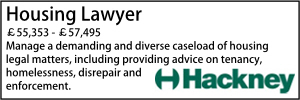What’s next for Scottish council powers on short term lets?
- Details
Rory Alexander examines the introduction of new powers for councils to tackle problems caused by the rapid growth of Airbnb-style holiday lets across parts of Scotland.
In Scotland, opinions on short term lets have become increasingly divided as the industry has grown at pace. In February, The Guardian reported the volume of short term lets across the UK is densest in parts of Scotland, with Edinburgh’s Old Town home to 29 Airbnb listings for every 100 properties. The north-west of Skye has the second highest volume, with 25 listings per every 100 properties.
The coronavirus crisis will likely have an impact on these numbers, with an influx of properties being added to the long term rental market in Edinburgh since the nationwide lockdown was announced in March. But looking toward the future, we need to anticipate that the long and short-term rental markets will balance back out in time.
It is easy to see the appeal of short-term lets for landlords seeking flexibility in how they let properties. Short-term, AirBnb-style lets enable homeowners to list properties at certain times of year, or days of the week, often at higher price points than a longer term rental.
However, for locals in need of rental homes, short-term lets can reduce the supply of long-term rented accommodation and increase prices among the properties that are left on the market. This has led to long-term, permanent residents claiming that these short-term lets add to unwanted noise, waste, and anti-social behaviour in many areas.
Other issues have been identified, too, such as whether safety standards in short-term lets are on a par with other types of tourist accommodation, whether lets operating commercially are still paying required council charges, and whether tenement properties in particular are even suitable as short-term lets.
These issues have prompted legislation through the Planning (Scotland) Act 2019, with the Scottish Government giving councils new powers to tackle problems caused by the rapid growth of Airbnb-style holiday lets across parts of Scotland. Following consultation, the government intends to give councils the necessary powers to introduce licensing schemes for short-term lets from spring 2021. Licensing of short-term lets will use the Civic Government (Scotland) Act 1982 with the scheme incorporating a compulsory element, underpinning safety standards for short-term lets, and additional, optional powers for councils to impose further conditions or requirements where that is appropriate for their areas.
Once in force, section 17 of the Planning (Scotland) Act 2019 will provide some clear authority to councils, enabling them to designate ‘short-term let control areas’. This will mean that planning permission will be required for any short-term let within that controlled area, however further regulations on how control areas will operate is awaited.
Control areas will not be mandatory, and each authority will decide if they should be introduced. Clearly, areas where short-term lets is an issue will require even greater resources to introduce, implement and manage control areas. Perhaps more importantly, councils will also have additional demands to operate a new licensing regime.
As matters stand, existing planning powers have been used to regulate the industry which centres around what constitutes a material change of use.
The current legal position is set out in the English Court of Appeal decision of Moore v Secretary of State for Communities and Local Government, which considered what a material change of use is in the context of the change of use of a residential flat to a short-term letting, clarifying that the material change of use comes down to fact and degree.
Where there has been a material change of use, there have been mixed decisions from Scottish Ministers through the Planning and Environmental Appeals Division (DPEA) on whether planning permission is required, as each decision comes down to the individual facts and circumstances of each case.
Relevant considerations for the decision maker include frequency of arrivals and departures, number of people staying, frequency of noisy or otherwise unsociable activities, impact on public services, and location of the flat within a building as top floor flats could cause more disruption to neighbours. Given the variety of factors, questions around material change of use have resulted in different decisions depending on a variety of different factors.
There are still a number of questions to answer on how local authorities will effectively regulate short-term lets in a way that protects resource, accounts for the concerns of long-term residents and locals in need of rented accommodation, and supports tourism with a viable number of AirBnb-style listings. As further regulation is announced, and more precedent for “material change of use” is created, Scottish local authorities will become more and more capable of finding an effective method of regulation in their communities.
Rory Alexander is Planning and Local Government Partner at one of the largest independent law firms in Scotland, Morton Fraser, and a Legal Associate of the RTPI. He can be contacted on 0131 247 1114 or by email.
Must read
Fix it fast: How “Awaab’s Law” is forcing action in social housing
Housing management in practice: six challenges shaping the sector
Why AI must power the next wave of Social Housing delivery
Sponsored articles
Unlocking legal talent
Walker Morris supports Tower Hamlets Council in first known Remediation Contribution Order application issued by local authority
09-12-2025 1:00 pm
11-12-2025 11:00 am







































